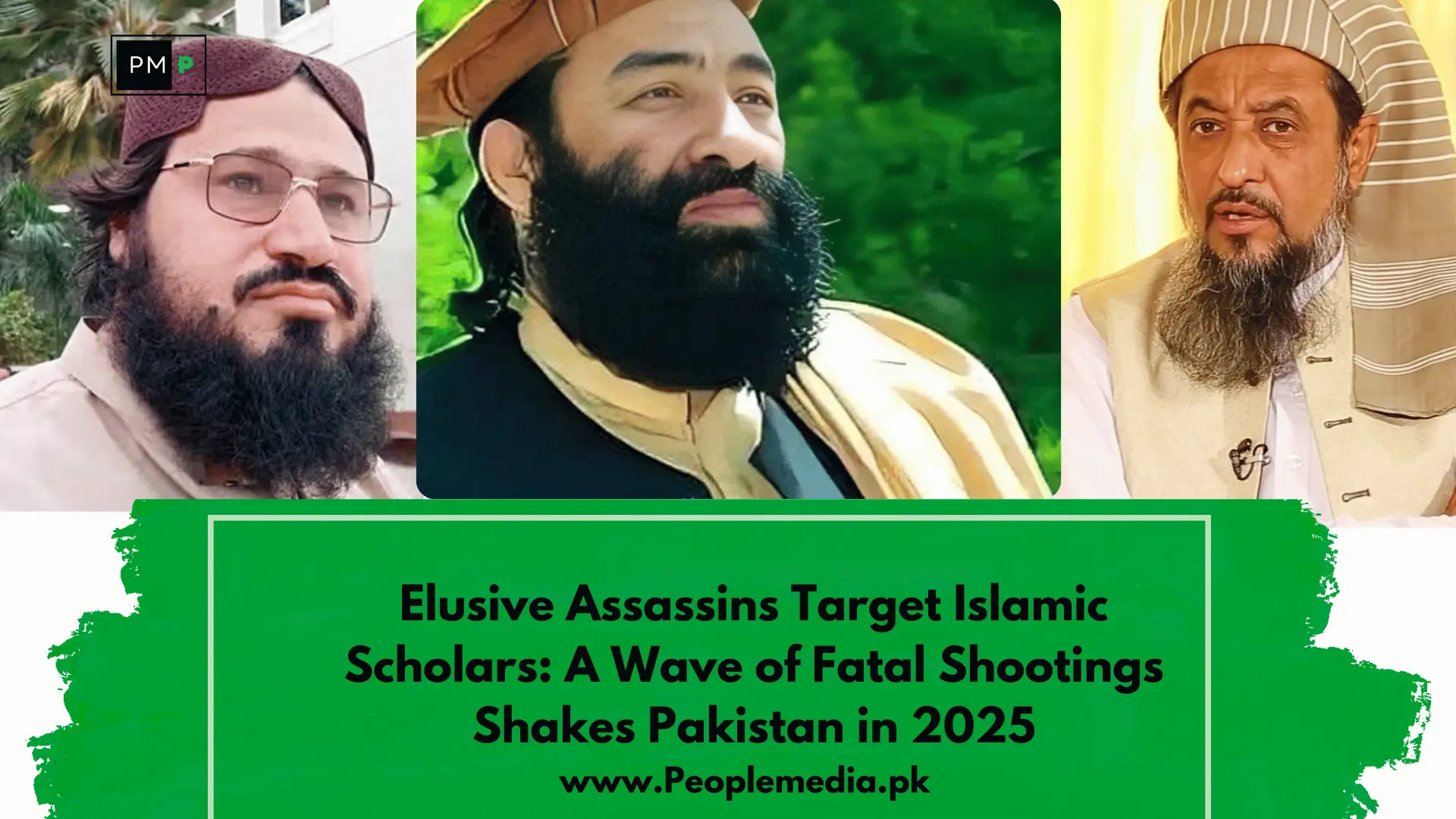Rising Violence: Islamic Scholars Targeted in Pakistan in 2025
Pakistan, a nation with a rich tapestry of Islamic scholarship, has been rocked by a disturbing wave of violence targeting its religious figures in early 2025. As of March 21, 2025, several prominent Islamic scholars have been killed in high-profile attacks, underscoring the persistent challenges of sectarian tensions, militancy, and political instability in the country. While comprehensive data remains limited due to the sensitive nature of these incidents, the documented cases paint a grim picture of a society grappling with deep-seated conflicts. Here, we explore the latest reported killings and their broader implications.
Maulana Hamid-ul-Haq: A Seminary Under Siege
On February 28, 2025, a suicide bombing tore through the Darul Uloom Haqqania seminary in Akora Khattak, Khyber Pakhtunkhwa, claiming the lives of six worshippers, including Maulana Hamid-ul-Haq. As head of the influential seminary and a leader within the Jamiat Ulema-e-Islam-Sami (JUI-S), Hamid-ul-Haq was a towering figure with ties to the Afghan Taliban—his father, Maulana Sami-ul-Haq, was famously dubbed the “Father of the Taliban.” The attack, which occurred during Friday prayers, left 20 others injured and sent shockwaves through Pakistan’s religious community. No group immediately claimed responsibility, but the seminary’s historical links to militancy and its Deobandi affiliations have fueled speculation about sectarian or ideological motives. This brazen assault, just ahead of Ramadan, highlighted the vulnerability of even well-guarded religious institutions.
Mufti Shah Mir: Gunned Down in Balochistan
Days later, on March 6, 2025, Mufti Shah Mir, a respected scholar aligned with Jamiat Ulema-e-Islam-F (JUI-F), met a violent end in Turbat, Balochistan. Unknown gunmen ambushed him as he left a mosque after night prayers, firing multiple rounds that left him fatally wounded. Rushed to a nearby hospital, he succumbed to his injuries. Shah Mir was no stranger to danger—he had survived two previous assassination attempts, suggesting he was a deliberate target. His death in a restive province known for insurgent activity points to the intersection of religious influence and regional power struggles. The JUI-F condemned the killing, but the perpetrators remain at large, leaving the motive shrouded in mystery.
Maulana Yar Muhammad Mehsud: A Mysterious Murder
Around March 17, 2025, reports emerged of Maulana Yar Muhammad Mehsud’s death, though details remain scarce and unverified beyond social media posts on platforms like X. According to these accounts, his body was discovered on a roadside, hinting at a targeted execution. Without official confirmation, this case exemplifies the challenges of tracking such incidents in real-time, particularly in Pakistan’s volatile tribal regions. If true, it adds another name to the growing list of scholars caught in the crosshairs of violence, possibly linked to local rivalries or militant agendas.
A Pattern of Peril
These killings are not isolated tragedies but part of a broader surge in violence against religious figures in Pakistan. The country has long wrestled with sectarian divides—Sunni vs. Shia, Deobandi vs. Barelvi—and the influence of militant groups like the Tehreek-e-Taliban Pakistan (TTP) and the Islamic State-Khorasan Province (ISKP). In 2025 alone, terror-related incidents have claimed over 255 security personnel and numerous civilians, with scholars often becoming collateral damage or deliberate targets. The Akora Khattak bombing, for instance, may reflect ISKP’s ideological clash with the Afghan Taliban’s Deobandi allies, while Shah Mir’s assassination could stem from Balochistan’s complex mix of insurgency and sectarianism.
Pakistan’s blasphemy laws and political instability further complicate the landscape. Scholars who speak out—whether for moderation or orthodoxy—risk retribution from extremists or rival factions. The lack of immediate claims for some attacks suggests a shadowy web of motives, from personal vendettas to orchestrated campaigns against religious authority.
The Road Ahead
As Pakistan navigates this turbulent period, the loss of these scholars reverberates beyond their communities. Figures like Hamid-ul-Haq and Shah Mir were not just educators but custodians of Islamic thought, shaping the moral and intellectual fabric of society. Their deaths leave a void—and a challenge. Strengthening security around religious sites, fostering inter-sectarian dialogue, and dismantling militant networks are urgent priorities. Yet, the deeper task lies in addressing the root causes: poverty, radicalization, and a fractured national identity.
For now, the nation mourns, and the world watches. The stories of these fallen scholars remind us that in Pakistan, the pursuit of faith can come at the ultimate price. As more details emerge, we’ll continue to track this unfolding crisis—because understanding the past is the first step toward safeguarding the future.
Last updated: March 21, 2025
Disclaimer: The information presented in this article is based on data available from media and public sources in Pakistan as of March 21, 2025. Due to the sensitive and rapidly evolving nature of these events, details may be incomplete, unverified, or subject to change. We strive to provide accurate and up-to-date reporting, but ongoing developments may not be fully reflected here. Readers are encouraged to consult multiple sources for the latest updates.




